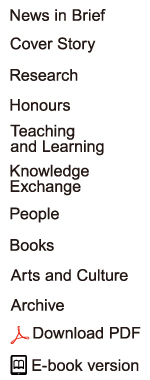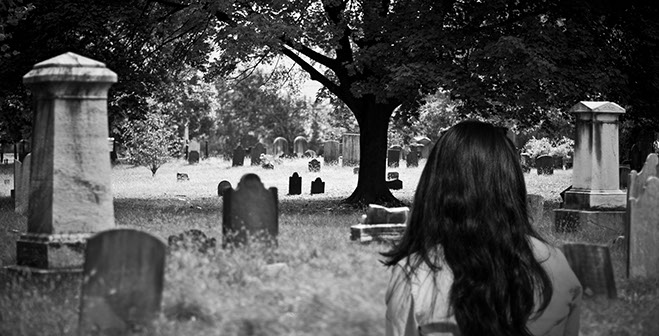GOOD GRIEF
Dr Amy Chow of the Department of Social Work and Social Administration has been investigating how to help people navigate the tides of grief.
The nuclear families, longer life spans and breakdown of community that characterise modern living are also changing the character of modern life after death.
More and more people are alone in bereavement, unable to talk to friends because of the taboo against discussing death in Chinese society, or because their friends try to minimise their grief by encouraging them to move on or even to see death as a joyous journey to heaven.
All of that is cold comfort to the recently bereaved and deeply concerning to Dr Amy Chow in Social Work, whose focus of research is grief.
“We’re worried because family sizes are getting smaller and a lot of couples are not having children, which means their spouse becomes their only confidante. When they die, they feel like their family is totally disintegrating,” she said. “We need some formal systems in the community to support them.”
Dr Chow has been studying and developing interventions for various groups, most recently widows, the intellectually disabled, suicides and even pet owners, to improve understanding and help them through this difficult process.
![]() Family sizes are getting smaller and a lot of couples are not having children, which means their spouse becomes their only confidante. When they die, they feel like their family is totally disintegrating.
Family sizes are getting smaller and a lot of couples are not having children, which means their spouse becomes their only confidante. When they die, they feel like their family is totally disintegrating. ![]()
Dr Amy Chow
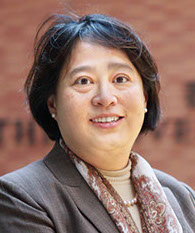
A safe haven
Her intervention with elderly widows encouraged them to ‘oscillate’ between contemplating their loss and attending to daily living and new relationships. This was found to reduce their physical symptoms, depression and anxiety compared with a group that underwent a more traditional intervention focussed on the sense of loss.
“A lot of older adults we’ve worked with find our groups a safe haven to share their feelings. They said in a follow-up interview that they never had the chance to talk about their grief in such an open way because no one wanted to listen or could understand,” she said.
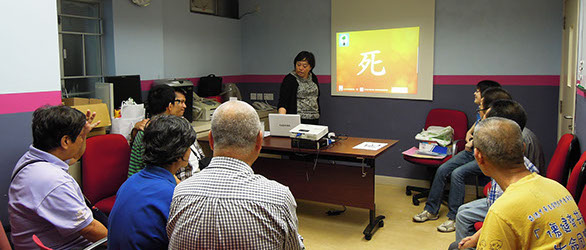
Dr Chow organises workshops for bereaved persons to lessen their grief.
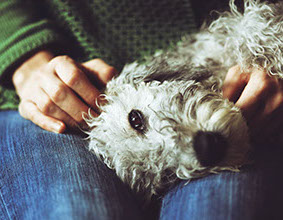
To pet owners, the passing away of a pet can be as traumatic as losing their human loved ones.
A similar sense of isolation could be drawn for grieving pet owners. Dr Chow surveyed more than 500 of them and found they missed their lost pet as much as older adults who lost their partners to cancer. She saw this as another example of modern realities.
“Some couples choose not to have children but have a pet instead, and they treat the pet as a family member. When the pet dies, they also suffer grief and bereavement, which is usually overlooked by others. It can be as great a blow as someone who loses a human loved one,” she said.
Another group often neglected in grief is the intellectually disabled. Death matters have become much more complicated for this group because they are living longer – it used to be their parents could expect to outlive them.
“With medical advances, this special group now lives longer than their parents, who are becoming nervous about who will take care of their kids, or if they die whether their children will understand what is going on.”
Moving forward
Dr Chow has collaborated with a rehabilitation service for the intellectually disabled to ascertain how much they understand, and develop a manual, training video and workshops for working with this group on death issues. Interestingly, about one-third of the subjects she worked with understood basic notions of death.
“We’re not focussing on the meaning of death. I want them to know life has a limit. From that we discuss what is the purpose of life and what are the things you want to do when both you and your parents are still around.
“I have been surprised that even though they have limited ability, some of them were able to articulate that they want to learn how to take good care of themselves so their parents don’t have to worry about what will happen when they die.”
A final focus for Dr Chow has not so obviously changed with modern living but is nonetheless very painful: bereavement after suicide. She has developed an intervention model to help families support each other through the trauma and feelings of guilt.
“Family members may blame themselves and don’t want to talk about what has happened. But in reality they need support and intervention. Research shows people bereaved by suicide have a higher chance of suicide compared to other bereaved persons,” she said. The key is to get them to communicate and appreciate what they have as they move on.
This idea resonates in an activity Dr Chow organised with elderly widows, to release fish and shrimp into the sea.
“Some of the fish stayed near the shore and did not swim away,” she said. “The bereaved participants told them, ‘you have to go, you have to move on’.” Almost as if they were talking to themselves.
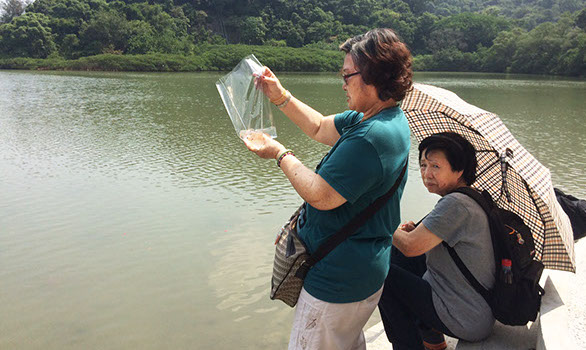
Dr Chow takes elderly widows to release fish and shrimp into the sea for helping them to move on.

